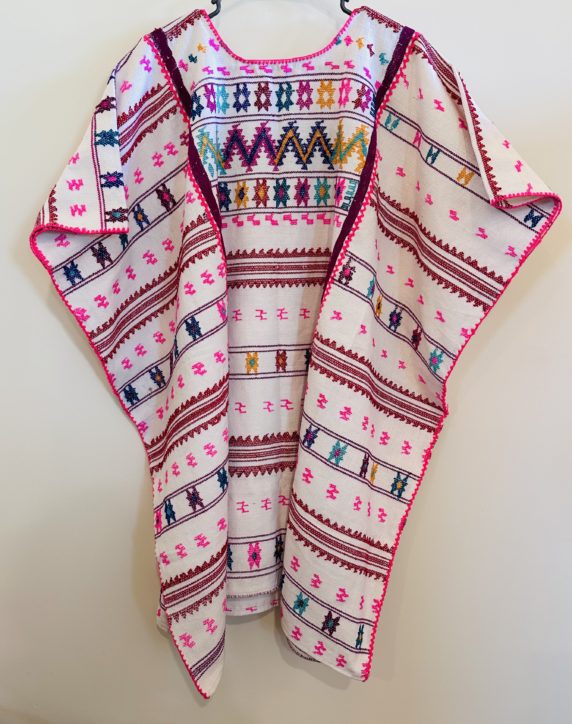From Stephen to My Mother, age 94:
I very much enjoyed reading your email and the article about Mexico. It is truly horrific. But so are the drug killings in this country as the drugs are dealt out. The same gangland shootings have been going on in the States, but here, the media’s white, and after a while nobody pays attention anymore.
Most of the people in Mexico are untouched by the violence, as are most people in this country. Here and in Mexico, it’s largely the unemployed/unemployable despairing poor who run the risks of dying to make a way up and out. We can never win the “war” on drugs. We need to legalize them immediately, thereby destroying the illegal manufacturing and transport industries that have grown up around them. Your points about our nation being the cause since we’re the buyers of druga and the sellers of arms is a good one. Also about the thugs in the banks and on Wall St. And all the oil thugs, and the revolving door between corporations and the government, etc.
I wrote a colleague of mine who retired to Mexico last March on a one year trial. They are in San Miguel Allende, a mountain town north east of Mexico City, with a lot of Anglo expats, some in gated communities. This is what I said and his response:
“Everyone here asks about the drug war and its impact on expats as the horrific slaughter mounts. What’s your experience and your take on the whole mess?”
He replied:
“In San Miguel one has absolutely no idea there’s a drug war going on with the exception that people are skittish about driving to and from the US. When there is a visiting dignitary there are a lot of soldiers and body guard types in town but I have nothing to compare this to and it may simply be business as usual and nothing new. For the celebration of San Miguel Day there must have been someone visiting town. We counted 75 soldiers and bodyguard types walking home from our Spanish tutor and lots of streets around two hotels were roped off. But this may be standard procedure. People never talk about the narcoterrorism thing except to comment on the fact that people in the US are afraid to visit and tourism is down sharply and restaurants and boutiques are going out of business.
We went to Xilitla in the mountains east of here (above the Gulf of Mexico) to see Las Pozas, the 80 acre jungle mountain site converted into a surrealistic park with amazing buildings and sculptures. I’ll forward you some photos in a separate email.”
The same thing is true in Oaxaca where the US market for drugs is destroying the local economy, most of which is based on tourism. Local agriculture in the valley, both commercial and the smaller milpas people kept, have been made irrlevant by NAFTA: the price of US government subsidized corn and beans is well below the cost of locally produced Mexican corn and beans, so small farms are going under, just like in the States, and the land is being bought up by Mexican and US corporations. So the US has successfully exported monocrop pesticidal and herbicidal factory farms to Mexico.
Mexico and many other post-colonial countries may be rife with corruption, a residue everywhere of colonial occupation; yet our country is not immune. We call it “bribery” in the third world. Here, we call it lobbying.
So, this has been enjoyable, but I need to get up, feed my pigs, thin my beets and carrots and focus on marketing my practice so some day I can retire.







Yaxchilan: Remote Mayan Site in Chiapas Jungle–Get There By Boat!
Yaxchilan (Yash-chee-lahn) is situated on the high banks of the Usumacinta River that borders Mexico and Guatemala, three hours southeast of Palenque. The secluded ruins are in a dense jungle only accessible by river boat, a good 30-minute ride from the launch site. The boat ride is a wonderful transition from now to then. In years past, Lacandon Mayas made this passage in open dugout canoes. Today, the wood-planked boats are covered in palm thatch.
Alligator or crocodile?
Yaxchilan rivaled Palenque (Mexico) and Tikal (Guatemala) as these three “super-powers” vied for control over the surrounding lesser Mayan centers that provided food, tribute and able fighters.
This magnificent archeological site is worthy of several hours of your time. It is a space that is dark jungle, moss-covered, limestone rocks tumbled and crumbling, and with only the beginnings of a restoration in process.
As you walk into the space you feel as if you were an archeologist discovering it for the first time. It speaks of antiquity. The howler monkeys calling back and forth across the river are haunting, adding a sense of mystery to the place. I pass through a compact Mayan arch into a vast plaza.
Situated high on a river bank, the site offers a strategic location on the wide and magnificent Usumacinta River, testifying to the power and influence of this once-great city. Huge bromeliads hang from hundred foot high trees with mahogany colored trunks. I walk beneath a tall canopy of leaves, vines, roots and flowering succulents, careful not to trip on toppled stones.
Yaxchilan is probably like Palenque was 30 years ago. The only nearby lodging is at the boat launch site, where there are also a couple of good restaurants. If you contact Daniel Chank In, the Selva Lacandon guide, he can help you make lodging and boat travel arrangements instead of taking the cookie-cutter day trip.
My journal scrawlings about the Palenque to Yaxchilan passage:
The languages of travel are Czech, German, three varieties of English (Brit, American, Aussie), Spanish, French, Dutch. These are my traveling companions. In Palenque they speak Chol. We stopped for breakfast at a simple comedor with tree trunks for stools and a dirt floor and GREAT coffee, dark and rich, locally grown and organic. I have not been sick since I arrived in Mexico a month ago.
We are western women taught to cover our breasts, be modest. From the window of the van I see a woman at the water source, one large breast exposed, suspended, full of milk walking toward a toddler waiting for nourishment. Plank wood and palm thatch cover the humans at night. Shelter is simple for man, woman, cows, chickens. Chiapas, siempre verde is the state motto. It is always damp here. We are on flat land now, clear-cut for growing corn and lumbering, heading toward the frontier. Maize scrabble, hard-scrabble, bare feet, dirt, bare chests, men at work with machetes. We pass a sign: This is Zapatista country. Land of campesinos.
Grazing land, cattle, horses. Ceiba trees, overcast skies, animals are thin I see their bones. We pass through pueblos of resistance, a village sign announces this, the sign is rough wood with white paint. The land is flat, vast, green scrub. This is the road to the Guatemala border. We pass military sentries, checkpoints, men heavily armed, some masked. Put your cameras down and cell phones away, says the driver, as we approach one. They wave us through. On the way back, away from the border, we are stopped and I show my passport. Of course they are checking for drugs and I know that the pipeline works its way across the river through the jungle to the vast cities and towns of America where demand keeps this business in business. Did I feel in danger? No.
Like this:
3 Comments
Posted in Cultural Commentary, Oaxaca Mexico art and culture, Photography, Travel & Tourism
Tagged archeology, architecture, blogsherpa, Bonampak, Chiapas, lodging, Mexico, Oaxaca, Palenque, safety, tourism, travel, Usumacinta River, War on Drugs, Yaxchilan